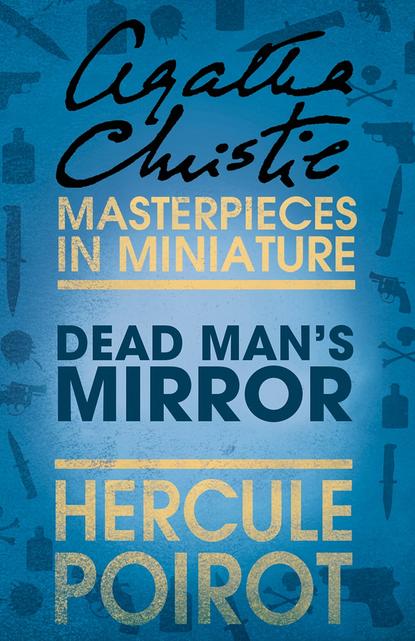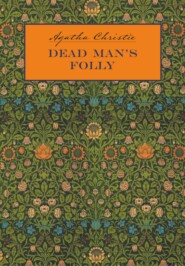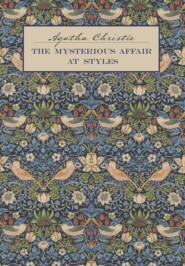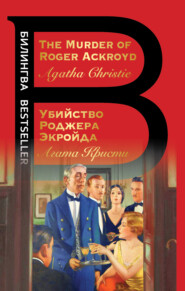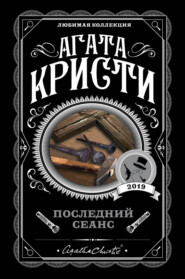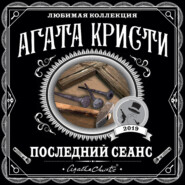По всем вопросам обращайтесь на: info@litportal.ru
(©) 2003-2024.
✖
The Dead Man’s Mirror: A Hercule Poirot Short Story
Автор
Год написания книги
2018
Настройки чтения
Размер шрифта
Высота строк
Поля
‘You know, my dear fellow, it is really ages since I saw you. I always feel myself privileged to have seen you work at close quarters in the Crow’s Nest business. I feel since then that I am in the know, so to speak. I saw Lady Mary only last week, by the way. A charming creature – pot-pourri and lavender!’
After passing lightly on one or two scandals of the moment – the indiscretions of an earl’s daughter, and the lamentable conduct of a viscount – Poirot succeeded in introducing the name of Gervase Chevenix-Gore.
Mr Satterthwaite responded immediately.
‘Ah, now, there is a character, if you like! The Last of the Baronets – that’s his nickname.’
‘Pardon, I do not quite comprehend.’
Mr Satterthwaite unbent indulgently to the lower comprehension of a foreigner.
‘It’s a joke, you know – a joke. Naturally, he’s not really the last baronet in England – but he does represent the end of an era. The Bold Bad Baronet – the mad harum-scarum baronet so popular in the novels of the last century – the kind of fellow who laid impossible wagers and won ’em.’
He went on to expound what he meant in more detail. In younger years, Gervase Chevenix-Gore had sailed round the world in a windjammer. He had been on an expedition to the Pole. He had challenged a racing peer to a duel. For a wager he had ridden his favourite mare up the staircase of a ducal house. He had once leapt from a box to the stage and carried off a well-known actress in the middle of her rôle.
The anecdotes of him were innumerable.
‘It’s an old family,’ went on Mr Satterthwaite. ‘Sir Guy de Chevenix went on the first crusade. Now, alas, the line looks like coming to an end. Old Gervase is the last Chevenix-Gore.’
‘The estate, it is impoverished?’
‘Not a bit of it. Gervase is fabulously wealthy. Owns valuable house property – coalfields – and in addition he staked out a claim to some mine in Peru or somewhere in South America, when he was a young man, which has yielded him a fortune. An amazing man. Always lucky in everything he’s undertaken.’
‘He is now an elderly man, of course?’
‘Yes, poor old Gervase.’ Mr Satterthwaite sighed, shook his head. ‘Most people would describe him to you as mad as a hatter. It’s true, in a way. He is mad – not in the sense of being certifiable or having delusions – but mad in the sense of being abnormal. He’s always been a man of great originality of character.’
‘And originality becomes eccentricity as the years go by?’ suggested Poirot.
‘Very true. That’s exactly what’s happened to poor old Gervase.’
‘He has perhaps, a swollen idea of his own importance?’
‘Absolutely. I should imagine that, in Gervase’s mind, the world has always been divided into two parts – there are the Chevenix-Gores, and the other people!’
‘An exaggerated sense of family!’
‘Yes. The Chevenix-Gores are all arrogant as the devil – a law unto themselves. Gervase, being the last of them, has got it badly. He is – well, really, you know, to hear him talk, you might imagine him to be – er, the Almighty!’
Poirot nodded his head slowly and thoughtfully.
‘Yes, I imagined that. I have had, you see, a letter from him. It was an unusual letter. It did not demand. It summoned!’
‘A royal command,’ said Mr Satterthwaite, tittering a little.
‘Precisely. It did not seem to occur to this Sir Gervase that I, Hercule Poirot, am a man of importance, a man of infinite affairs! That it was extremely unlikely that I should be able to fling everything aside and come hastening like an obedient dog – like a mere nobody, gratified to receive a commission!’
Mr Satterthwaite bit his lip in an effort to suppress a smile. It may have occurred to him that where egoism was concerned, there was not much to choose between Hercule Poirot and Gervase Chevenix-Gore.
He murmured:
‘Of course, if the cause of the summons was urgent –?’
‘It was not!’ Poirot’s hands rose in the air in an emphatic gesture. ‘I was to hold myself at his disposition, that was all, in case he should require me! Enfin, je vous demande!’
Again the hands rose eloquently, expressing better than words could do M. Hercule Poirot’s sense of utter outrage.
‘I take it,’ said Mr Satterthwaite, ‘that you refused?’
‘I have not yet had the opportunity,’ said Poirot slowly.
‘But you will refuse?’
A new expression passed over the little man’s face. His brow furrowed itself perplexedly.
He said:
‘How can I express myself? To refuse – yes, that was my first instinct. But I do not know … One has, sometimes, a feeling. Faintly, I seem to smell the fish …’
Mr Satterthwaite received this last statement without any sign of amusement.
‘Oh?’ he said. ‘That is interesting …’
‘It seems to me,’ went on Hercule Poirot, ‘that a man such as you have described might be very vulnerable –’
‘Vulnerable?’ queried Mr Satterthwaite. For the moment he was surprised. The word was not one that he would naturally have associated with Gervase Chevenix-Gore. But he was a man of perception, quick in observation. He said slowly:
‘I think I see what you mean.’
‘Such a one is encased, is he not, in an armour – such an armour! The armour of the crusaders was nothing to it – an armour of arrogance, of pride, of complete self-esteem. This armour, it is in some ways a protection, the arrows, the everyday arrows of life glance off it. But there is this danger; Sometimes a man in armour might not even know he was being attacked. He will be slow to see, slow to hear – slower still to feel.’
He paused, then asked with a change of manner:
‘Of what does the family of this Sir Gervase consist?’
‘There’s Vanda – his wife. She was an Arbuthnot – very handsome girl. She’s still quite a handsome woman. Frightfully vague, though. Devoted to Gervase. She’s got a leaning towards the occult, I believe. Wears amulets and scarabs and gives out that she’s the reincarnation of an Egyptian Queen … Then there’s Ruth – she’s their adopted daughter. They’ve no children of their own. Very attractive girl in the modern style. That’s all the family. Except, of course, for Hugo Trent. He’s Gervase’s nephew. Pamela Chevenix-Gore married Reggie Trent and Hugo was their only child. He’s an orphan. He can’t inherit the title, of course, but I imagine he’ll come in for most of Gervase’s money in the end. Good-looking lad, he’s in the Blues.’
Poirot nodded his head thoughtfully. Then he asked:
‘It is a grief to Sir Gervase, yes, that he has no son to inherit his name?’
‘I should imagine that it cuts pretty deep.’
‘The family name, it is a passion with him?’
‘Yes.’
Mr Satterthwaite was silent a moment or two. He was very intrigued. Finally he ventured:





